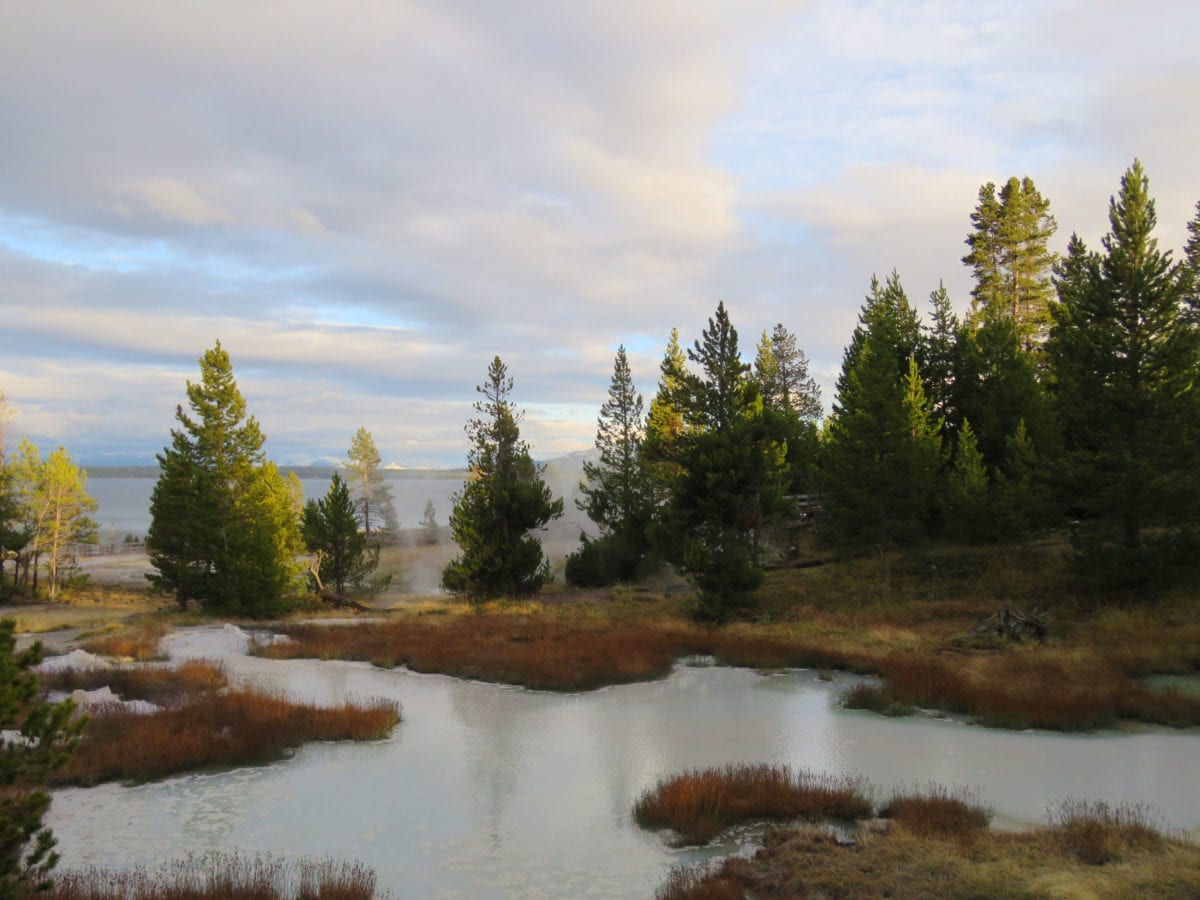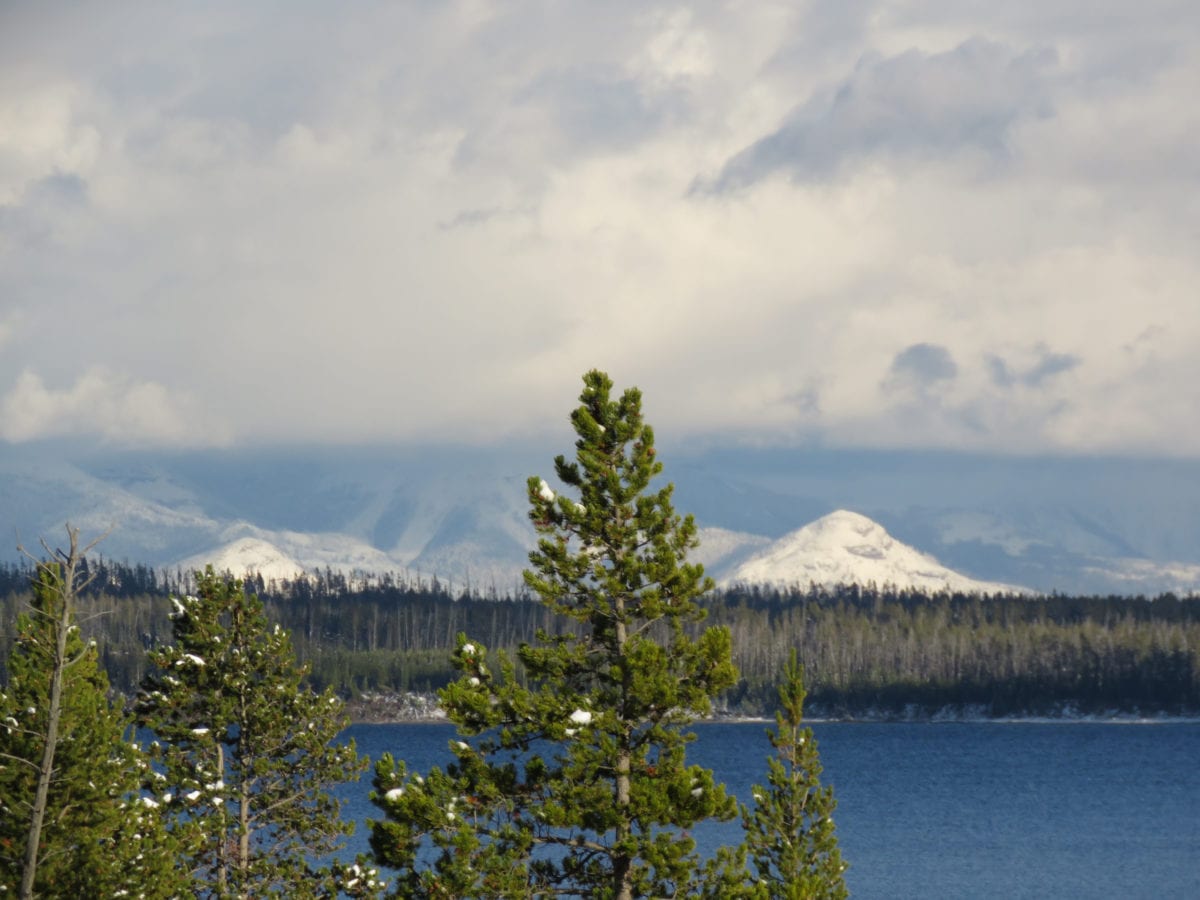By Glynn Wilson –
Welcome back on the first work day of 2019, that is unless you work for the federal government. In case you missed it traveling over the holidays, the government is still shut down thanks to President Donald J. Trump’s intransigence over border wall funding.
The impacts of the government shutdown are already being felt all over the country, especially in the national parks. America’s best idea is now being trashed since there are no rangers on duty and private concessionaires and volunteers are being overwhelmed by trash and sewage since there’s no one there to clean the bathrooms or pick up the garbage.
Some Congressional leaders are scheduled to meet with Trump at a White House on Wednesday afternoon, as Democrats are set to take control of the House on Thursday. They plan to vote on a plan to end the shutdown without including money for building a border wall, which is likely to continue the stalemate.
White House press secretary Sarah Sanders, who is supposed to be leaving the job soon, issued a statement Tuesday night calling the plan “a non-starter because it does not fund our homeland security or keep American families safe from human trafficking, drugs, and crime.”
Nancy Pelosi, who is apparently on track to be Speaker of the House, responded to the statement and Trump’s tweets on the subject.
“We are giving the Republicans the opportunity to take yes for an answer,” she said, since the Republican-controlled Senate had previously supported similar legislation.
Senate Majority Leader Mitch McConnell has indicated that he will not take up legislation that the president will veto.
Meanwhile around Washington, according to reporting from a wide range of news outlets, the Smithsonian Institution museums and the National Zoo were set to close Wednesday for lack of funds.
Around the country, many national parks were left without most staff, resulting in some facilities being overwhelmed with trash and subject to damage.
The American Federation of Government Employees said it sued the government Monday on behalf of more than 400,000 federal employees who are having to work without pay.
Without a breakthrough, the Federal Communications Commission will suspend most operations Thursday, no longer taking consumer complaints and halting review of proposed mergers such as wireless provider T-Mobile US Inc.’s $26.5 billion bid for Sprint Corp.
The federal judiciary remains open and can continue to operate fully through Jan. 11 by using funding not dependent on new appropriations.
The 115th Congress ends Thursday, when the session beginning at noon marks the start of the 116th. Pelosi is expected to secure enough Democratic votes to become speaker for a second time.
If the shutdown standoff continues, all workers in the departments and agencies affected by the closing will miss their next paycheck on Jan. 11.
The shutdown, which began Dec. 22, affects nine of the 15 federal departments, dozens of agencies, and hundreds of thousands of workers.
An estimated 400,000 federal employees are working without pay and 350,000 are furloughed.
Federal employees working without pay and those now furloughed got their Dec. 28 paychecks under a decision by the White House budget office because pay reflects work before Dec. 21.
Among the departments without funding are: Justice, Homeland Security, Interior and Treasury. Independent agencies, including the Securities and Exchange Commission, are also affected.
The departments whose funding lapsed represent about a quarter of the $1.24 trillion in government discretionary spending for fiscal year 2019.
The remaining parts of the government, including the Defense Department and the Departments of Labor and Health and Human Services, were already funded and won’t be affected by the shutdown, nor will mandatory entitlement programs such as Medicare payments.
But in the national parks, garbage is piling up, bathrooms are closed or dirty with no maintenance staff on duty to clean them, and volunteers are worried about abuse of the parks by some visitors who will violate the rules with impunity since there are no rangers on duty to enforce park regulations.
The lack of staff and unsanitary conditions have led to the closures of several areas of Sequoia and Kings Canyon National Parks, for example. The closures went into effect at 6 p.m. on Monday, according to Sintia Kawasaki-Yee, Sequoia and Kings Canyon National Parks public affairs officer.
“The parks are being forced to take this action for health and safety concerns,” Kawasaki-Yee said in a press release issued Monday evening. “Trash receptacles are overflowing, resulting in litter dispersal throughout the area and a threat to wildlife.”
Sequoia National Park closures include the Generals Highway at Hospital Rock. The closure extends through Giant Forest and Lodgepole, through to Lost Grove. Concession facilities at these locations, including Wuksachi Lodge, are closed.
An overflow of vehicles, motor vehicle accidents and icy roadways have caused congestion along Generals Highway. Visitors can expect up to three-hour delays on the roadway, according to park rangers.
Areas within Kings Canyon have also become hazardous.
The Grant Tree Trail, normally minimally maintained by sanding, has become extremely slick. The ice and snow have become compressed and glazed due to heavy traffic, which has caused multiple falls and at least one injury, park rangers said.
Those visiting the Grant Grove area can also expect closures. Closures include the road to the General Grant Tree, Big Stump picnic area, and Azalea Campground.
In other national parks across the country, the situation is even more dire.
Human feces, overflowing garbage, illegal off-roading and other damaging behavior in fragile areas were beginning to overwhelm some of the West’s iconic national parks.
“It’s a free-for-all,” Dakota Snider, 24, who lives and works in Yosemite Valley, said by telephone Monday too a reporter for USA Today, as Yosemite National Park officials announced closings of some minimally supervised campgrounds and public areas within the park that are overwhelmed.
“It’s so heartbreaking. There is more trash and human waste and disregard for the rules than I’ve seen in my four years living here,” Snider said.
Unlike shutdowns in some previous administrations, the Trump administration was leaving parks open to visitors despite the staff furloughs, said John Garder, senior budget director of the nonprofit National Parks Conservation Association.
“We’re afraid that we’re going to start seeing significant damage to the natural resources in parks and potentially to historic and other cultural artifacts,” Garder said. “We’re concerned there’ll be impacts to visitors’ safety. It’s really a nightmare scenario.”
Under the park service’s shutdown plan, authorities have to close any area where garbage or other problems become threats to health and safety or to wildlife, spokesman Jeremy Barnum said in an email Monday.
“At the superintendent’s discretion, parks may close grounds/areas with sensitive natural, cultural, historic, or archaeological resources vulnerable to destruction, looting, or other damage that cannot be adequately protected by the excepted law enforcement staff that remain on duty,” Barnum said.
Campers at Joshua Tree National Park in Southern California’s deserts were reporting squabbles as different families laid claims to sites, with no rangers on hand to adjudicate, said Ethan Feltges, who operates the Coyote Corner gift shop outside Joshua Tree.
Feltges and other business owners around Joshua Tree had stepped into the gap as much as possible, hauling trailers into the park to empty overflowing trash bins and sweeping and stocking restrooms that were still open, Feltges said.
Feltges himself had set up a portable toilet at his store to help the visitors still streaming in and out of the park. He was spending his days standing outside his store, offering tips about the park in place of the rangers who normally would be present.
“The whole community has come together,” Feltges said, also by phone. “Everyone loves the park. And there’s a lot of businesses that actually need the park.”
Some visitors have strung Christmas lights in the twisting Joshua trees, many of which are hundreds of years old, the Los Angeles Times reported.
Most visitors were being respectful of the desert wilderness and park facilities, Joshua Tree’s superintendent, David Smith, said in a statement.
But some are seizing on the shortage of park staffers to off-road illegally and otherwise damage the park, as well as relieving themselves in the open, a park statement said. Joshua Tree said it would begin closing some campgrounds for all but day use.
At Yosemite, Snider, the local resident, said crowds of visitors were driving into the park to take advantage of free admission, with only a few park rangers working and a limited number of restrooms open.
Visitors were allowing their dogs to run off-leash in an area rich with bears and other wildlife, and scattering bags of garbage along the roads, Snider said.
“You’re looking at Yosemite Falls and in front of you is plastic bottles and trash bags,” he said.
Officials at Rocky Mountain National Park in Colorado said Monday they were closing restrooms and locking up trash bins in many locations.
In Yellowstone National Park, private companies have picked up some of the maintenance normally done by federal workers. The contractors that operate park tours by snowmobile, buses and vans are grooming trails, hauling trash and replacing toilet paper at pit toilets and restrooms along their routes.
Nearly all roads inside Yellowstone are normally closed for winter, meaning most visitors at this time of the year access park attractions like Old Faithful or the Grand Canyon of the Yellowstone through guides. Those guides are splitting the cost of grooming the trails used by their vehicles to keep their operations going, said Travis Watt, general manager of See Yellowstone Alpen Guides based in West Yellowstone, Montana.
The tour companies can likely keep this system going through the entire winter season if they need to, Watt said.
“It’s definitely not our preference – the park service does a good job doing their thing and we hate to see them out of work,” Watt said.
According to the Washington Post, the government shutdown has left America’s national parks largely unsupervised. No one is at the gate. No one is collecting a fee. The visitor centers are closed. There are some law enforcement and emergency personnel on site, but certainly nothing as standard as a park ranger who can answer a question.
People are streaming into the parks, enjoying the free access, but they’re finding trash cans overflowing and restrooms locked. Vault toilets are not serviced, and there’s hardly a flush toilet to be found anywhere. If nature calls — well, the woods are over that way.
At Joshua Tree National Park, in particular, conditions are deteriorating.
“Once those port-a-potties fill up, there’s no amount of cleaning that will save them,” said Sabra Purdy, who along with her husband, Seth, owns the rock-climbing guide service Cliffhanger Guides in the town of Joshua Tree. “At that point, I think I’m going to have to tap out.”
The 40-year-old Purdy is among dozens of volunteers who have been collecting garbage, cleaning bathrooms and generally keeping an eye on the park. Local business owners and park supporters are donating toiletries and cleaning supplies.
“People are doing it because we love this place and we know how trashed it’ll get if we don’t,” she said.
“It’s not quite ‘Lord of the Flies’ yet,” said Bryan Min, 30, who traveled to Joshua Tree with friends from Orange County and is camping outside the park. “Who knows how it’ll be tonight?”
“The parks are supposed to be heritage sites for generation after generation. I would rather they close than be damaged,” said Joe De Luca, a sales associate at Nomad Ventures in the town of Joshua Tree.
Kenji Haroutunian, president of Friends of Joshua Tree, a nonprofit climbing organization, said he’s not happy with the shutdown and the attendant loss of normal services in the huge park that he said is within a two-hour drive of 14 million people in Southern California.
“It’s hugely disappointing,” Haroutunian said. The border wall dispute, he said, “is not a priority that deserves to close down the government.”
At Big Bend National Park in Texas, George Cashman of Milwaukee said he was disappointed by the absence of park rangers. Last year, he said, he took his family — including four kids under the age of 10 — to Yellowstone, where the kids enjoyed the junior ranger program.
“There are no rangers to talk to and help the kids out. Last year, one of the rangers in Yellowstone let them take the temperature of one of the geysers. Those memories aren’t going to happen this year,” Cashman said.
Greg Henington, owner of Far Flung Outdoor Center in Terlingua, a town just outside the park, said he voted for President Trump but blames the president for the shutdown, which he says creates confusion and uncertainty for local businesses.
“If we are going to continue to use the federal government as a weapon for not getting what we want in the sandbox, then this is untenable for small business. We can’t make decisions, we lay off employees, we take cancellations,” he said.
Even more seriously affected is the Mexican town of Boquillas, which is just across the Rio Grande from the national park and has always enjoyed a stream of visitors this time of year. But the border crossing normally staffed by the U.S. Department of Homeland Security has been closed during the shutdown, and no one is coming or going across the river.
“It has been terrible. We were waiting for our best time of the year,” said Lilia Falcon, who owns a restaurant and a bed-and-breakfast in Boquillas. “It’s when we wait and stock up and save the money we make for the rest of the year. Christmas has not been good for us because of the shutdown, but what can we do? Nothing! Nobody will ever hear us.”
In Death Valley National Park, employees of the Oasis at Death Valley, a private resort inside the park, have joined other concessionaires in picking up trash and cleaning bathrooms, said Trey Matheu, general manager of the resort. “We’re in it for the long haul,” he vowed.
At Yellowstone National Park, access this time of year depends on grooming of snow-covered roads — but the National Park Service’s shutdown plan does not consider such activity to be essential. That means the private concessionaires have had to pool their money to pay for the grooming.
“If we don’t do this, we’re closed. That’s really not much of an option. Having said that, we’re doing this certainly in hope and anticipation that the shutdown does not go on indefinitely,” said Rick Hoeninghausen, director of sales and marketing for Xanterra Travel Collection, a concessionaire in Yellowstone and many other parks.
At Greenbelt National Park, a large campground near the nation’s capital, there is only one volunteer campground host on duty and one camping loop open, with no rangers on duty and the bathrooms are locked.
More Photos

Artist paint pots of boiling hot volcanic water bring out the color of Yellowstone, expecially with snow capped mountains off in the distance: Glynn Wilson

















What has happened to us? Trump is destroying America while the GOP fiddles as if they were Nero. I have never seen such insanity. FOX “News” apparently runs the POTUS and White House. WHERE is common sense? The values expressed of Lady Liberty no longer apply here. I never thought I would live to see the rebirth of 1930s Germany and Italy play out on American soil. This will not end well.